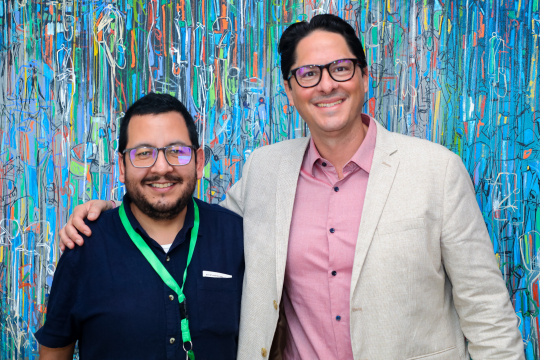SCOPE (Sustainable Consumption and Production) is a collaborative program that aims to identify measures that encourage changes in the behavior of consumers, producers, and organizations. These changes should lead to sustainable consumption and production practices.
"This highlights the importance of the small choices and actions we make in our daily lives within our homes. When these actions are multiplied by billions of people, they have a significant impact on the environment," says Pablo Evia, coordinator of SCOPE, which is hosted at EfD Central America.
SCOPE is an extension of the CMaR program, which addressed the issue of plastic pollution. The new program has, however, a wider scope and aims to also tackle issues related to unsustainable fashion and food waste. SCOPE researchers come from nine countries, including Sweden and Nigeria, and a strategic partner, Wageningen University, in the Netherlands.
Participates in EU-funded program
The SCOPE collaborative is currently involved in a project called Transformative Pathways (TRANSPATH) financed by the European Union. One of the leaders of this project is Francisco Alpízar, the Chair of the Environmental Economics and Natural Resource Group at Wageningen University & Research. Francisco Alpízar has previously served as the Center Director at EfD Central America and plays a crucial role as the scientific leader of the SCOPE program.
“If you want to make a change, it matters greatly where in the system you implement that change. Depending on where this change, such as a policy, is introduced, it can produce a chain of events,” says Francisco Alpízar.
“For example, coffee and cacao depend on pollinators and are hence vulnerable to deforestation and loss of biodiversity. Most cacao comes to Europe through large companies in the Netherlands and Belgium, which are important customers of the finance sector. This means that biodiversity loss can cause problems for the big import companies and instability in the finance sector. Consequently, preserving biodiversity in countries like Ghana and Costa Rica is important for the finance sector in Europe.”
Wageningen facilitated participation
“TRANSPATH and SCOPE are well-matched, as both are centered around achieving transformative changes at the societal level that respect our planet's boundaries and promote sustainable development that is in harmony with nature while supporting people's aspirations for progress,” says Pablo Evia.
Teaming up with the strategic partner Wageningen in the Netherlands has facilitated participation in this EU-funded program.
Among other activities, SCOPE is seeking funding for a research project to investigate the real costs of environmental policies. The project aims to explore how people perceive these costs and reveal their preferences regarding policies that may require sacrifices or impact their consumption patterns. The study aims to examine this issue globally across multiple locations.
Project will promote collaboration
Next year, SCOPE will also take part in a project to promote collaboration among the various EfD centers.
"The objective of this project is to bring together researchers from these centers to draft research funding proposals collectively,” says Pablo Evia.
“The funding will facilitate the assembly of researchers from these centers to collaborate on research proposals, fostering an environment of collective innovation and scientific advancement.”
By: Petra Hansson
About SCOPE
More information about SCOPE.
Interested in collaborating with SCOPE? Contact the leaders here!
